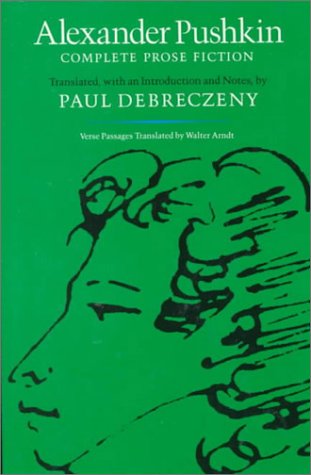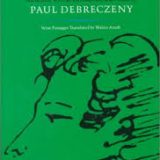Complete Prose Fiction (trans. by Paul Debreczeny) – Alexandr Pushkin – 1821-1841
Reviewed by: Eric Henderson Date: 15 March 2002
 I offer here more of a commentary on this work as a translation than the actual work of Pushkin. Nevertheless, I think this is valid because Paul Debreczeny offers an incredibly useful context for the reader to Pushkin’s fiction work.
I offer here more of a commentary on this work as a translation than the actual work of Pushkin. Nevertheless, I think this is valid because Paul Debreczeny offers an incredibly useful context for the reader to Pushkin’s fiction work.
In particular the work is organized to trace the development of Pushkin as a prose writer. He first started with fiction in what could be considered snide jest but, given his level of ability, his joke is our masterpiece.
From the very beginning these stories are enjoyable — even, in Pushkin’s less-than-his-most-serious approach to what he then considered to be an infintely lower art form than poetry.
As you walk through the short stories,though, you can see how Pushkin was awakened to the power of this literary form. I believe that if he were to ride shoulder to shoulder with Martin Heidegger, that he would agree that there is little distinction between prose and poetry if we consider only those instances that approach truth, truth, by its very nature being poetic.
(I’ll stop before digressing to another book, but, oh my!, is it worth reading, too. Poetry, Language, Thought. By Martin Heidegger)
Alexander Pushkin. Complete Prose Fiction by Debreczeny is solid stuff. I wish that I could read Russian to get the full impact of a writer who nearly alone saved Russian literature by pulling Russian language up from its relegated “lower class” status of that day. But Debreczeny gets us close enough to value the work in many different ways.
Having spoken of Pushkin with both native and non-native Russian speakers and seeing how his work lays on their souls, I believe I can at least identify with their feeling if, indeed, I can’t understand.















